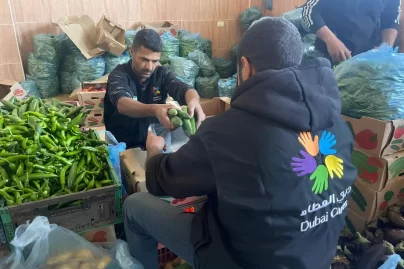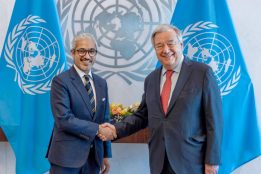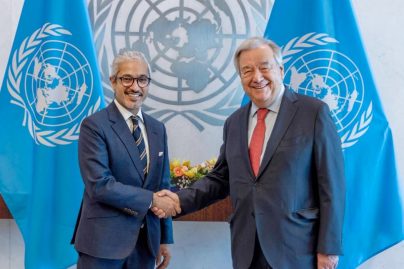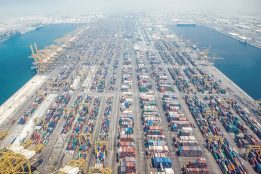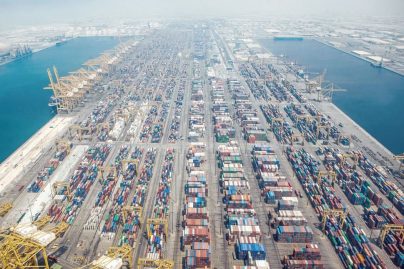World Majlis Golden Jubilee Month at the Expo 2020 Dubai prepares for the future
Sun 05 Dec 2021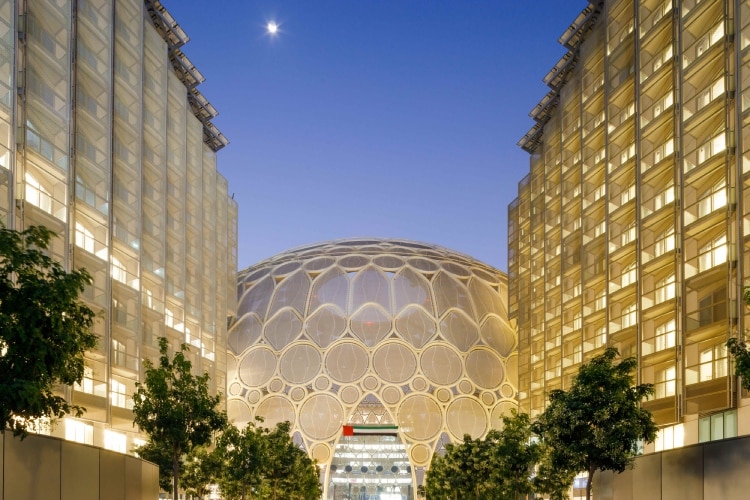
DUBAI: The role of technology in determining humankind’s future, from how Artificial Intelligence should be used to ensure equal access to information and other services, to how the internet can improve healthcare outcomes in the developing world, were discussed at Expo 2020 Dubai’s World Majlis Golden Jubilee Month, ‘Looking ahead to 2071: Preparing for the world in 50 years.’
Moderated by Abdulaziz Al Jaziri, Deputy CEO and Chief Operations Officer, Dubai Future Foundation, UAE, the Majlis asked panellists practical and philosophical questions around what the next 50 years will look like, whether the future they see is a peaceful one, how creativity can solve future problems, and how people can be kept healthy and happy in the future.
His Excellency Bernardino León, Director General, Anwar Gargash Diplomatic Academy (EDA), UAE said there should not be one person or entity that determines our technological future: “Technology should not be a way to build walls, but [should] allow people to travel more safely, [using] blockchain technology passports, you can use artificial intelligence recognition, etc. in a positive way to allow more people moving around.”
Professor Raghib Ali, Director and Principal Investigator, Public Health Research Centre and Research, Associate Professor, New York University Abu Dhabi, pointed out the last two years of the COVID-19 pandemic has been a wakeup call for the world but struck a hopeful note about the future of health and healthcare. “We are on the cusp of a new revolution now… in relation to genetics and artificial intelligence… We’re only beginning to see now its potential for really transforming the delivery of healthcare, both the diagnosis management and using genetics and AI together to ensure that the whole world has access to the best diagnostics and treatment and in 50 years’ time I see my role as a doctor very much replaced by AI.”
Professor Nidhal Guessoum, Professor of Physics and Astronomy, American University of Sharjah, UAE said the two technological developments that are proving to be challenging are genetic engineering and artificial intelligence. It is the youth, though, who will create the future and must be taught to think of others when they invent new technologies: “The way to ensure… the future for tomorrow would be the future that we want and a future that is not determined by technology is to make sure that we infuse technology with ethics and with human rights.”
Panellists agreed that humanity is at a crossroads and that decisions about our shared future are being made right now, whether it concerns technology, climate change, or healthcare.
The distinction between the physical and digital will become increasingly less clear, but this does not have to be something negative. Dr. Alexandra Ivanovitch, Executive Director, Equality Lab, USA, Adjunct Faculty, Singularity University, USA said a World Expo is exactly the right time to talk about this. “The good news is that… the technology itself is neither good nor bad. The technology has already been used to decrease bias, to bring us closer together, to promote tolerance and inclusion. The technology has already been used to help us visualise the effects of climate change… The technology is being used right now in hospitals to reduce human suffering.”
Governments have an important role to play, particularly when it comes to regulation and transparency. In Estonia, 99 per cent of all government services are online and users of these technologies own all their own information. Daniel Schaer, Estonia Commissioner-General Expo 2020 Dubai, “How do we protect everybody, is to include everybody, by giving everybody the same equal opportunities to benefit from what we’re doing in the digital sphere.”
Some panellists noted contradictions in the development of technologies, and that the future is becoming unpredictable. Professor Ziauddin Sardar, writer, cultural critic, and futurist (UK) said there would always be downsides to technologies, and that hard questions needed to be asked, “What we need to ask ourselves is not whether a technology can be developed but should it be developed. The question of ‘can’ should also come with the question of ‘ought’… We really need to step back and ask some fundamental ethical and moral questions about what is happening and where we are going and what do we do about it.”
April K Ward, PhD candidate, University of Lincoln and former UNESCO Futures Literacy Project Manager, asked how peace could be maintained, said there were too many binaries. “Either you’re right and I’m wrong or they’re right and we’re wrong. This ability to handle complexity, the ability to handle some things that we don’t perhaps understand fully, the ability to handle and appreciate difference — they seem extremely interconnected in this question of violence and non-violence and peace… There’s this space for creativity when we’re able to step outside of: it’s ‘A’ or ‘B’, it’s one or the other.”
The discussion also touched on how we can manage our fears for the future, and once again, the use of technology was foregrounded. Dr. Ivanovitch concluded, “There is a way that we can perhaps simulate different futures, test-drive multiple futures, a future where we actually reign in big corporations, a future where we actually end this conflict with nature, a future where we don’t do that and perhaps give younger generations the ability to pre-live it and just benchmark the outcomes and make a decision for themselves.”
Source: Expo 2020 Website

 Apr 18 2024
Apr 18 2024

